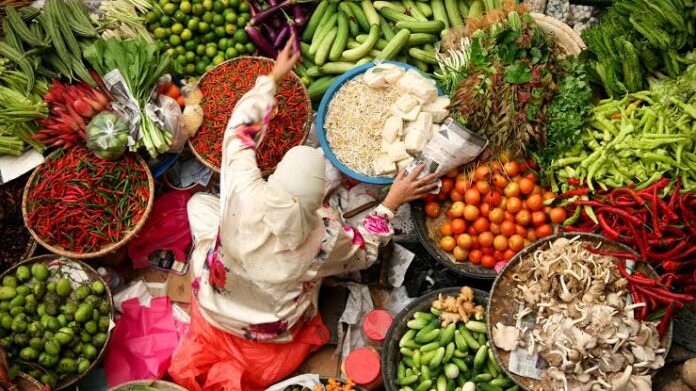UN Climate Summit: NGOs call for urgent agri-food system reforms
At COP29’s Finance Day 4, a coalition of global non-profit organizations, including the True Animal Protein Price (TAPP) Coalition, Plant Based Treaty, A Well-Fed World, Feedback Global, ProVeg International, and the Global Youth Coalition, urged high-income countries to reform agriculture and food policies to combat climate change.
The call emphasized reducing greenhouse gas emissions in line with scientific recommendations, international agreements, and a World Bank proposal. The NGOs advocate for public support and subsidies for low-carbon food products like vegetables, which produce fewer emissions, require less land and water, and contribute to healthier diets.
The coalition’s plea comes nearly a year after the COP28 conference in Dubai, where leaders agreed to transition away from fossil fuels.
Now, they are calling on world leaders, including Ursula von der Leyen, Keir Starmer, Justin Trudeau, and Xi Jinping, to commit to reducing meat and dairy overconsumption, particularly in high-consuming countries like the OECD nations and China.
These leaders are urged to take decisive steps at COP29 in Baku or COP30 in Belém to ensure global food security and climate resilience.
A Shift Towards Sustainable Food Systems
Stephanie Maw, Senior UN Policy & Advocacy Manager at ProVeg International, stated, “The global food system significantly contributes to climate change, responsible for 33% of greenhouse gas emissions, with animal agriculture alone accounting for up to 20%. Without meaningful reforms, emissions will only continue to rise.”
READ ALSO: FG introduces 2 new chicken breeds, 14 high-yield crop varieties to boost agriculture
The NGOs call for a just transition to plant-based, resilient food systems that align with climate targets, emphasizing support for farmers to shift away from high-emission animal agriculture.
Akshath Kaimal of the TAPP Coalition highlighted, “Current food systems disproportionately harm Indigenous and vulnerable communities in the Global South. Reforming food taxes and subsidies can help meet Paris Agreement targets while supporting these groups through mechanisms like the newly established Loss and Damage (L&D) Fund.”
The Cost of Inaction
Animal agriculture drives deforestation, biodiversity loss, and land degradation, contributing to climate change. The sector’s projected growth of 37-46% by 2050 threatens net zero targets.
The coalition advocates for policies such as greenhouse gas taxes on meat and dairy in high-income countries, as suggested by the IPCC and FAO. Such measures could incentivize a shift to plant-based diets, reducing emissions and supporting climate-affected communities.
With COP29 ongoing, NGOs stressed the urgency of reforming global food systems to ensure planetary health and protect vulnerable populations.
Their declaration, signed by over 100 NGOs and four nation states, calls for taxing high-emission sectors to co-finance climate adaptation and resilience efforts.
The Food & Climate Action Group comprises 25+ international NGOs working towards systemic change in food production and consumption. Engaging with UNFCCC bodies, they advocate for sustainable, inclusive, and plant-based agricultural practices to meet global climate targets.
Representatives will be present at COP29 to promote these initiatives and influence international climate policy negotiations.
Follow the Neptune Prime channel on WhatsApp:
Do you have breaking news, interview request, opinion, suggestion, or want your event covered? Email us at neptuneprime2233@gmail.com





